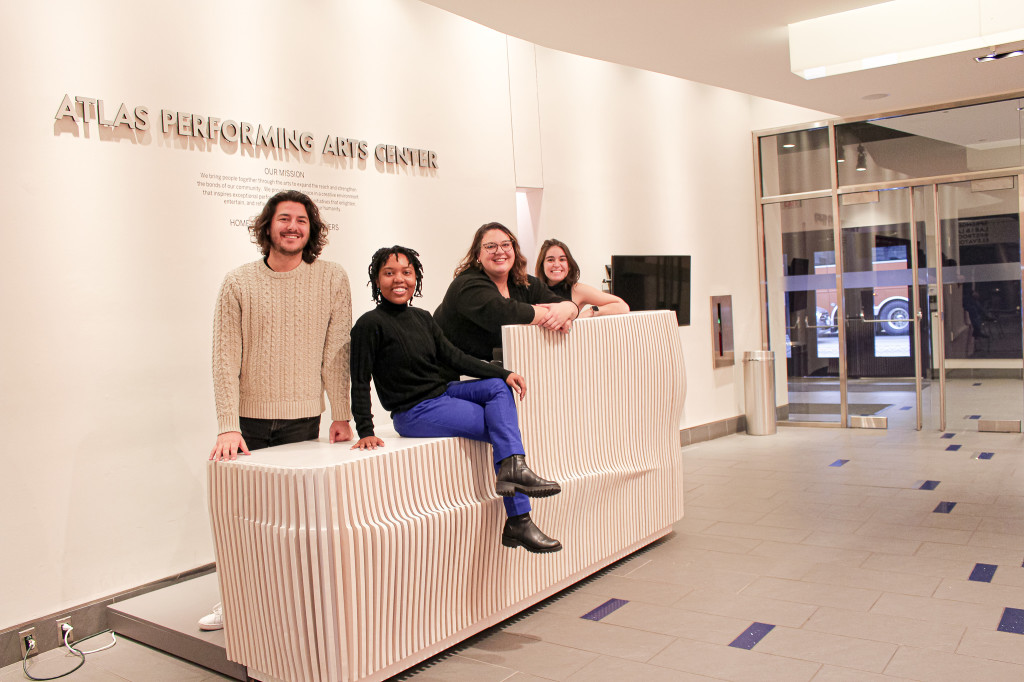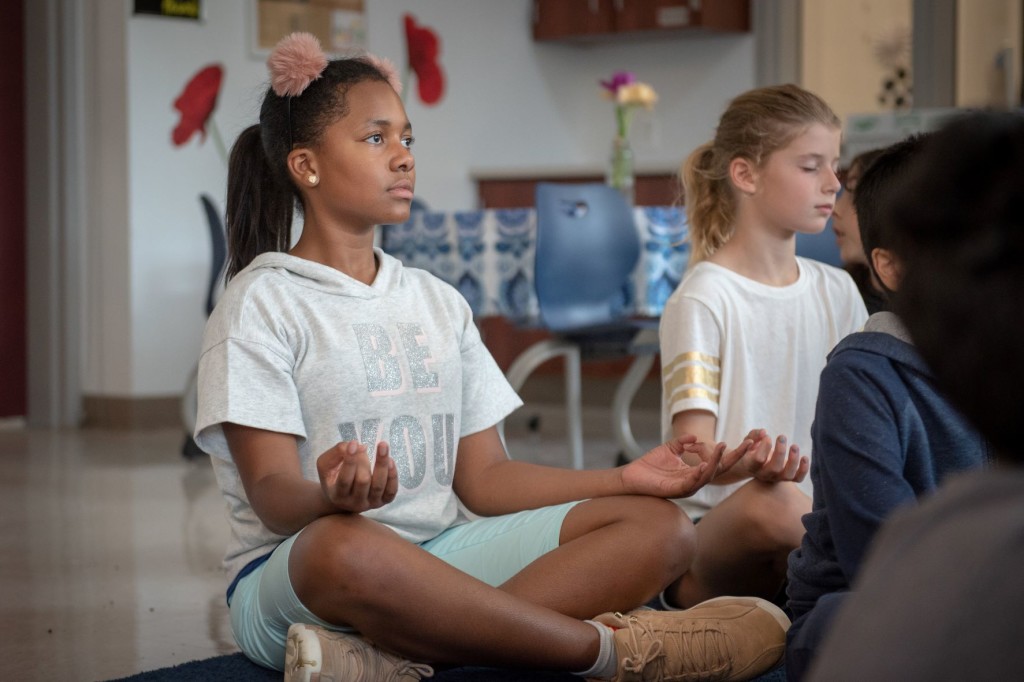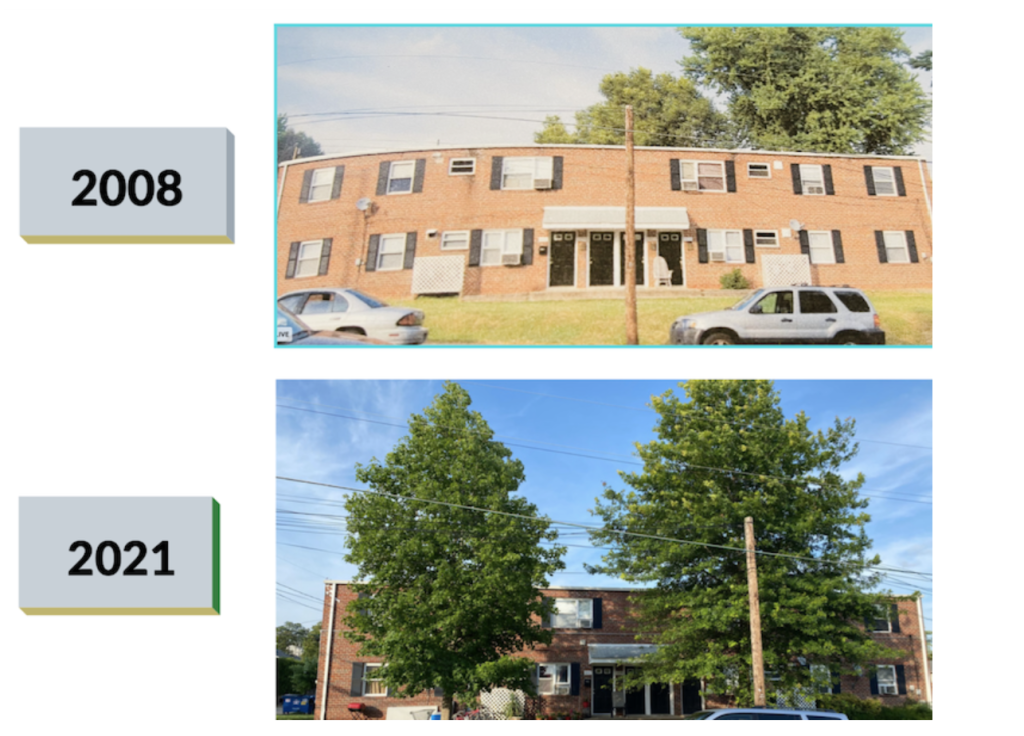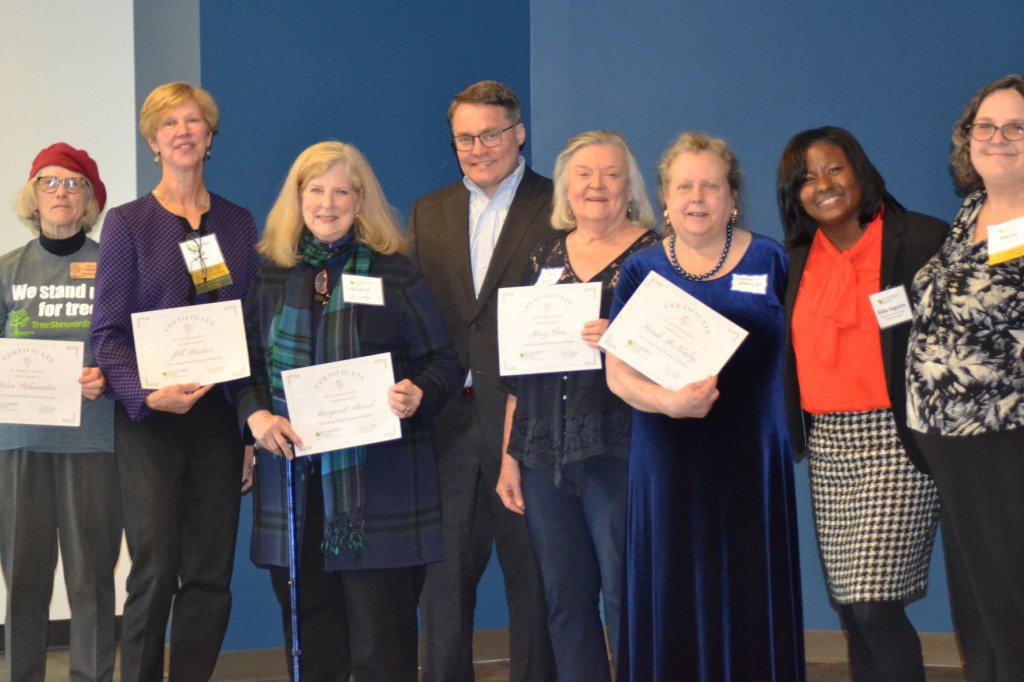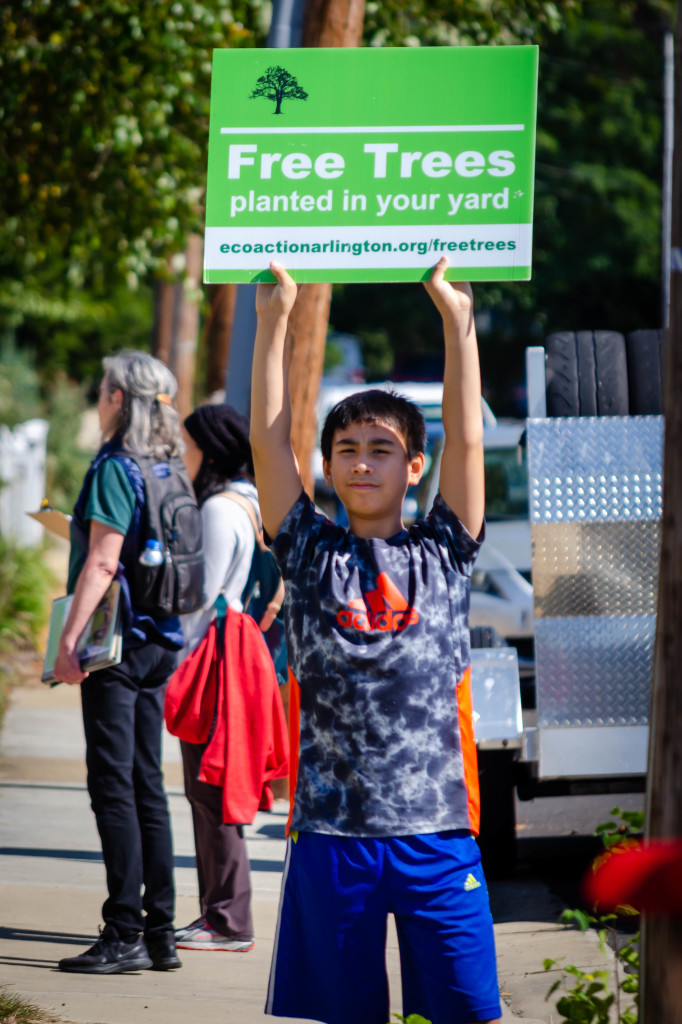Celebrating Women Entrepreneurs on the Chevy Chase Main Street Corridor
By Anna Claire Walker, Chevy Chase Main Street Manager, District Bridges
Chevy Chase Main Street (CCMS) is one of six DC Main Street grants managed by District Bridges, a DC-based community development nonprofit. District Bridges’ mission is to enrich neighborhood vitality by bridging community engagement and economic development opportunities so individuals, businesses, and organizations can thrive together; a mission that has become even more important since the COVID-19 pandemic.
Designated in 2020, CCMS quickly became a vital resource for small businesses in Chevy Chase DC as they navigated the many challenges of the pandemic, assisting in the application of emergency funds and loans, negotiating leases, and providing resources around mask and vaccine mandates. While small businesses were impacted heavily across the board, a recent survey by the US Chamber of Commerce reveals that women-owned businesses were disproportionately affected by the pandemic.
CCMS includes 18 women-owned businesses, three of which are immigrant-owned businesses, across a variety of industries including retail, health and wellness, professional services, art, music, food and beverage. To commemorate Women’s History Month, let’s get a glimpse into some of the successes and challenges these hardworking entrepreneurs have gone through in operating their businesses along the CCMS corridor.
June B Sweet
June B Sweet is a stationery and gift shop with unique sweets from Brazil, where owner June Drummond was born and raised. CCMS assisted Drummond in one of the most pivotal moments for their businesses. A community member mentioned a grant program called “Great Streets” that they believed June B Sweets may be eligible for. Drummond looked into it, taking advantage of her and her husband’s background as lawyers to navigate the confusing world of grant applications. However, even with their combined expertise, the application process proved to be a challenging undertaking, so she turned to CCMS for help.
“I already had received some successful grants, but nothing up to the standards of the Great Streets program. It was beyond my capacity and ability to keep up with the due diligence, the paperwork, and the preciseness of the documentation. In the middle of COVID, I found the grant process overwhelming, but I got tremendous support from CCMS, and I applied in January 2021.” June B Sweets was awarded the grant and has used it to improve the facade of the store, which has gotten much attention from the community and boosted their revenue.
Core72
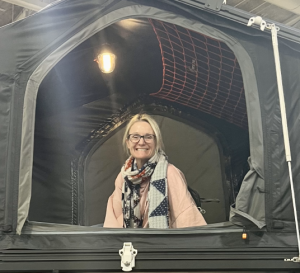
Ferrall Dietrich of Core72
Core72 is a retail store inspired by the “West Coast outdoorsy lifestyle” that owner, Ferrall Dietrich, experienced in her summers of traveling across the country with her sons — sleeping in a rooftop tent, visiting and camping through national and state parks.
“When I first opened, I was focused on providing women the technical apparel needed to be active outdoors — hiking pants, compression leggings, down jackets, base layers, etc. This focus has evolved over the years to embrace men’s apparel as well as general lifestyle — not just active but casual and relaxed apparel for everyday. The inspiration for our brand curation remains consistent through and lies with the unique, smaller companies that speak to me — because of their owner’s story, where they are made, their company ethos, and their quality.”
Dietrich became involved with CCMS upon its dedication in 2020 and has played an active role in community events, social media engagement, and has received grant funding from CCMS. “We received an improvement grant for our shop and replaced an aging floor. The store looks much improved and is more in line with our overall aesthetic.”
Core72 is celebrating their 10-year anniversary this March and Dietrich hopes for many anniversaries along the CCMS to come. “We just signed another 5-year lease with an option for five more. I’d love to keep it going for as long as possible — whether under my ownership and management or the next generations.”
Park Story
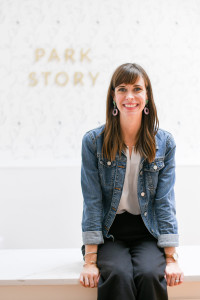
Meghan Evans of Park Story
Another independent retail store in the community is Park Story, owned by Meghan Evans. What started as a dream of owning her own clothing line eventually became a life and style boutique featuring responsibly made goods by local and independent brands. Evans received CCMS grant funds to purchase computer equipment to support their point of sale system, as well as funds to work with a local woodworker who created custom tables and cabinets to improve the shop layout and function.
Evans didn’t always know she wanted to be the owner of an independent boutique and, when asked what advice she would give her younger self, she answered, “Consider all career options. I decided at a very young age that I wanted to become a lawyer and never considered any alternatives. I don’t regret my law degree or the time I spent practicing, but I do wish I’d explored alternative career options earlier.”
Even with women entrepreneurs on the rise, there is still a disparity between the access to capital between men-owned businesses and women-owned. When interviewed, both Dietrich and Evans noted access to capital as a significant challenge for new brick-and-mortar businesses.
CCMS aims to make that access more equitable through our Small Business Grants, as well as connecting small businesses to programs they may be eligible for due to specific identity markers.
Bert’s Jewelers
One of the oldest women-owned businesses in the neighborhood is Bert’s Jewelers, located in the historic Chevy Chase Arcade. Owned by Katarina Marzullo, the “Bert” in the name originates from her grandmother, Alberta, who started the business in 1968. COVID-19 greatly affected the jewelry store and repair shop, causing it to move from its street-facing location in the Arcade to a smaller storefront further inside the building.
CCMS is currently working with Marzullo to apply for grants such as the Bridge Fund 3.0 to ensure that this historic business can continue its legacy of selling and repairing fine jewelry in the neighborhood.
Wine & Organic
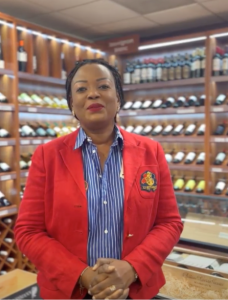
Eveline Ngassa of Wine & Organic
A newer business in the neighborhood is Wine & Organic. Owner Eveline Ngassa, originally from Cameroon and France, immigrated to the United States over 20 years ago. While adjusting to life in the US, she was struggling to find wine that had the taste and quality of the wine she was used to back in France, so she started her own wine shop with imported, organic wine. Her love of high-quality imported products doesn’t stop with wine, though. Over the holidays, she began selling European gift baskets with cheese, chocolate, and pate, all imported from her favorite suppliers from her life in France.
Ngassa has received marketing and event planning help from CCMS to combat the lower foot traffic of her location. Being a part of the Main Street has helped spread the word about the new business and promote their amazing products.
Artsy Beast
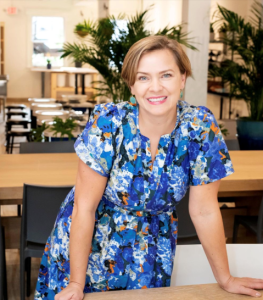
Melina Selimbegovic of Artsy Beast
The latest addition to the amazing women-owned businesses along the commercial corridor is Artsy Beast, a boutique art studio that offers classes in ceramics, wheel-pottery, and painting.
“I never pursued art, my life did not allow for such things as following your passion,” says Owner Melina Selimbegovic. “Rather, being a refugee from Bosnia, it was to follow your survival instincts. After working to support myself since age 15, culminating in a successful career in finance, it all suddenly came to an abrupt stop during COVID. It was in this space of not working for a few months and being reminded of how fragile and precious life is that I opened my eyes to new possibilities.
While being on vacation, my husband planted a seed, a thought, to go towards the arts, and this grew. It quickly snowballed from a small teaching idea to an arts studio for our community. I always had it in me, but I have never been more aligned and have never felt more connected to my true self than I am today.”
While there are many challenges that face new business owners, Selimbegovic notes how important a supportive network is when starting out. She found that support in her husband, who encouraged her while on vacation to pursue a new venture in the arts.
“Perhaps the biggest challenge is not having a mentor, a partner, support networks, someone that looks you in the eye and says, You got this!, and stands by you and offers a helping hand to solve a problem of simply lift you up… It would be a gamechanger for many rising women entrepreneurs to have a dedicated and involved mentor to see and guide their business from kitchen table to retail.”
From legacy businesses with over 30 years of experience to brand new startups, women in the Chevy Chase commercial corridor are creative, dedicated, and community-minded. This Women’s History Month, CCMS aims to promote and support the endeavors of all the amazing women entrepreneurs in Chevy Chase DC.
Learn more about the work of Chevy Chase Main Street and District Bridges’ other Main Street programs on their website. You can also support their work by donating, becoming a member, and/or following them on Facebook, Twitter, Instagram, and over email.
Notable Organizations and Businesses Run by Chevy Chase Women
- Park Story: 3813 Livington St NW, Washington, DC 20015
- Core72: 5502 Connecticut Ave NW, Washington, DC 20015
- Artsy Beast: 5518 Connecticut Ave NW, Washington, DC 20015
- June B Sweet: 3807 McKinley St NW, Washington, DC 20015
- Harmonic Music Studio: 3815 Livingston St NW, Washington, DC 20015
- Wine & Organic: 5712-14 Connecticut Ave NW, Washington, DC 20015
- Evers and Co: 20 Chevy Chase Circle, Ste A, Washington, DC 20015
- Ramers Shoes: 3810 Northampton St NW, Washington, DC 20015
- Salon Familia: 3817 Livingston St NW, Washington, DC 20015
- Bert’s Jewelers: 5520 Connecticut Ave NW, Washington, DC 20015
- Child’s Play: 5536 Connecticut Ave NW, Washington, DC 20015


